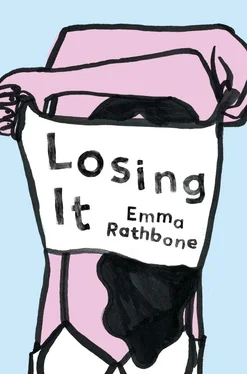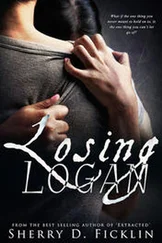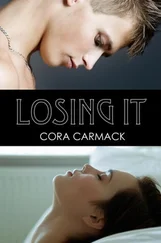I was pretty gripped by this story, which he told with some reluctance and shyness, turning a penny over and over in his hands. I thought it showed a depth and restlessness in him — to break away from your family like that, to have the courage to act on the itch of doubt that must have plagued him for so long. But sadness, too, to have left everything he knew and held close.
“Wow,” I said, after he finished talking, my mind racing, trying to think of something to say. “I cannot relate. To. Any. Of. That.”
“You were raised without religion?”
“My family was Catholic,” I said. “I was baptized and confirmed. But then my parents just gradually stopped practicing, and I never really missed it that much. My mom still goes to church sometimes. I miss the music, actually. I do miss that.”
“Uh-huh,” he said, nodding, looking down. I felt like I should have been able to parlay his story into something else, some larger conversation about religion, something to push us over the brink of actually connecting to each other on which we were now teetering.
The door opened and closed. I looked behind me. A woman holding a giant vintage clock walked in.
When conversation is easy, it’s easy. When it’s hard, it’s hard. But what about when it’s just in-between? Flaring from the bellows of shared experience, but just as quickly stalling out?
I continued trying to find a comfortable position in my small chair, shoving it forward and back, crossing and recrossing my legs.
We finally came to a natural stopping point. As we got up from that table, he kept his eyes on me, smiling that trembling smile, as if looking for guidance.
We walked outside and started wading through the heat.
“Which way?” I asked.
He shoved his hand into his pocket and withdrew his keys.
“My car’s just around the corner,” he said.
“Your car?”
“Yeah.”
“I thought you lived down the street.”
“I do,” he said. “It’s just bit of a walk in this weather.”
I hesitated but decided, at the time, that it made sense.
We reached his car and got inside and it was spotless. “Is this a rental?” I asked. He shook his head. “Nope.”
We pulled into the street and he started driving down Main and we were both strangely silent, as if we knew what was going to happen and were forgoing any formalities. It occurred to me then that neither of us had said anything again about the lucky rabbit’s foot collection, that I just got into a car with a complete stranger, and that no one knew where I was. I hadn’t even left a note for Aunt Viv.
I kept expecting him to pull over, or turn off somewhere. The sun illuminated some dusty handprints on his dashboard I hadn’t seen before. I was feeling more and more uneasy. “Where do you live?” I finally asked.
“It’s coming right up. Just a few more miles.”
Obviously, in his sheltered upbringing, Gerald had not developed a sensitivity to the flares that might go up in a woman’s mind, should she witness certain behaviors in a man driving her out of town — like flexing his jaw and gripping the steering wheel and staring straight ahead without saying anything.
It also occurred to me how the other side of fragility can be tremendous violence in a person, and I pictured him bashing my head in with a snow globe in a fit of rage.
Calm down, I told myself. It’s not likely that Gerald is a psychopath.
We finally turned into a complex, one of the new housing developments that were popping up on the outskirts of the city. It was a series of rows of town houses, with about a square foot of yard in front of each of them. At the entrance we passed a freshly painted sign that read “Madison’s Ridge” in elegant, slanted writing. There were still little orange construction flags here and there, and mounds of red dirt that hadn’t healed into landscaping grass. It felt eerily empty. A plastic sheet blew by.
Gerald must have read my mind. “It’s a new neighborhood,” he said. “I’m one of the first to move in.”
“Does it have a lot of amenities?” I said.
“Ha! Yeah.”
We parked in front of one of the houses and got out. He opened and shut his mailbox without really looking in, and we walked up the walkway. Inside, the apartment had a serene feel, with light falling on the carpet from large windows. It was pretty empty. There wasn’t anything on the walls. It didn’t look like anyone had moved in, but rather just stashed some furniture in the room. There was a flat-screen television and a black leather couch and a flimsy-looking side table. A disproportionate amount of cords ran across the floor.
About five minutes later we were drinking lemonade on his back deck. He’d poured us both a glass from the only thing in his fridge — a carton of juice.
We could see the other back decks of the other town houses, all in a row. The whole development was situated on a swell of land, not quite a hill. No one else was outside. It was thunderingly quiet. I felt like we were in the middle of nowhere, the last two people on earth, that we hadn’t gotten the memo about something.
Gerald was standing next to a newly bought grill as if he meant for me to notice it. I put my lemonade down on a glass table and looked at him. It was now or never. We both felt it.
“So where’s the collection?” I asked.
“Oh, yeah, that,” he said in an oily way. He put his drink down, and then came over to me, and in an embarrassing, theatrical way, pushed me against the sliding glass door and started kissing me. I finally had, in that moment, insight into his whole orientation toward this thing — the collection was just an excuse for me to come over. This whole day was based on the supposition that we were going to hook up, have sex, whatever. And by the bumbling draft of passion with which he kissed me, I could tell that he thought this whole time we’d both been simmering with desire. Why else would I have been so bold in the watercolor class? Why else would I have gotten into his car? And he was now, finally, breaking the seal, expecting it to all flow out.
We knocked over a terra-cotta pot that spilled out a mound of black dirt.
I was doing the bare minimum to keep apace, which was actually quite a lot, considering all the effort he was putting into it.
It was all wrong, but I was still in a state of shock, just trying to deal with the situation at hand. The sun kept flooding into my eyes. I felt like I was trying to get my bearings underwater.
He pulled away and looked at me with such raw passion that I was mortified. He took my hand, coyly swiveled around, placed my arm on his shoulder, and said, “Follow me.” As he led me into the house, I tripped on the doorway and knew something with complete certainty, something that had been hovering around my mind that I hadn’t let myself fully consider — that Gerald, too, was a virgin.
Get out of here, Julia. Just leave, I said to myself, as we walked up the dark, carpeted stairs. But I was somehow unable to change the flow of the current. And another, distant, calculating part of me thought, You’re so close. You’re so close now. This could be it. This was going to be it.
His room was just as bare as it was downstairs. A window looked out onto the bright roof. There was a large poster of Dalai Lama quotes in different fonts.
His bed was covered with a baby blue comforter. There was the smell of air freshener. It was too cold. Gerald sat on the edge of the bed and started daintily untying his shoelaces, leaving me stranded there.
He looked up, his eyes wet with admiration, and held out his hand. I moved toward him, a bit wobbly, as if walking a plank.
We eased down onto our backs. He leaned over and shoved his hand up my shirt and held my breast and started kneading it. I mechanically lifted an arm and touched the side of his head. Even that felt too intimate, the surface of his hair, like I was touching someone’s son.
Читать дальше
Конец ознакомительного отрывка
Купить книгу












